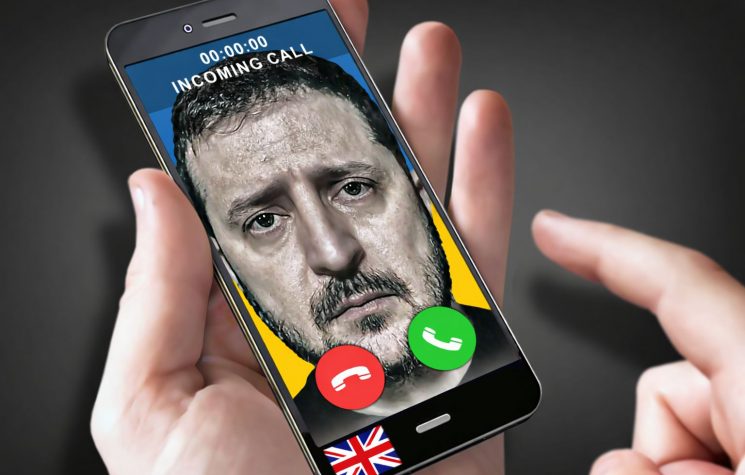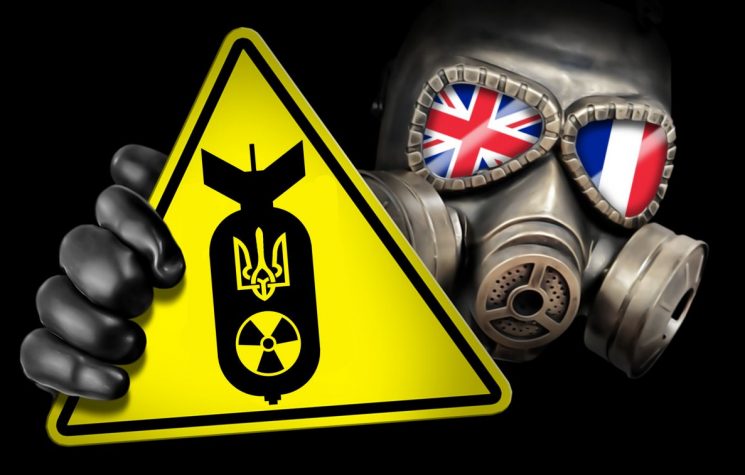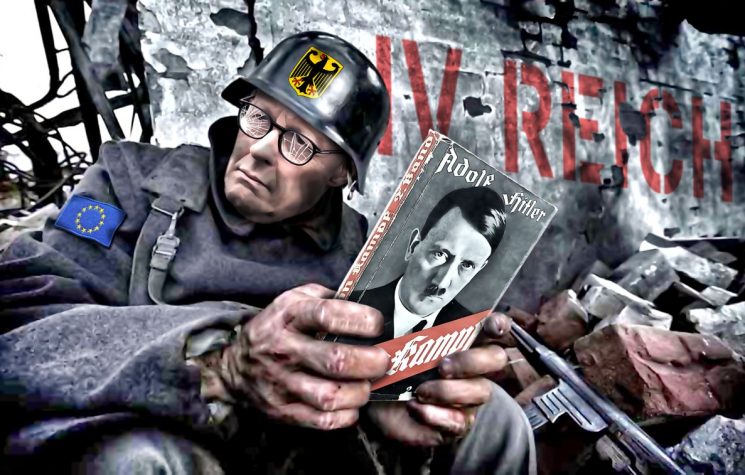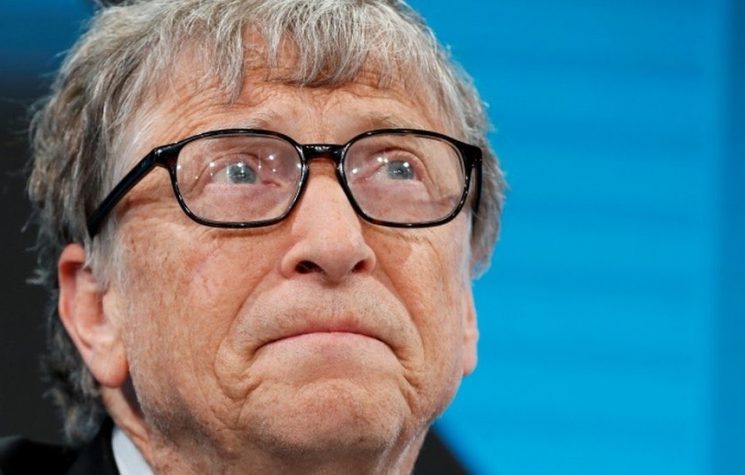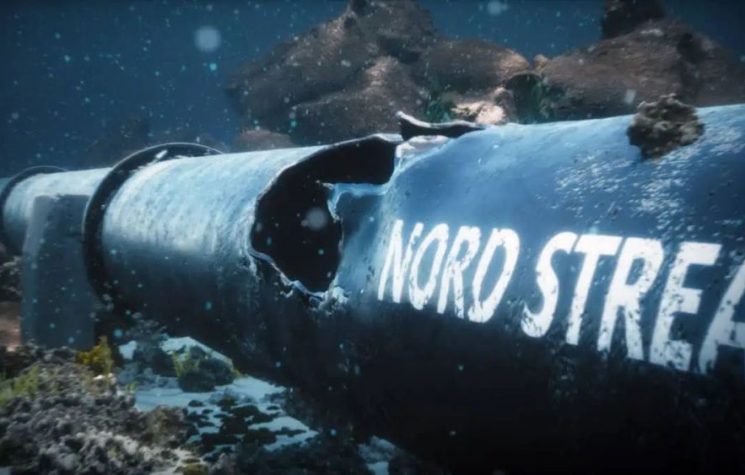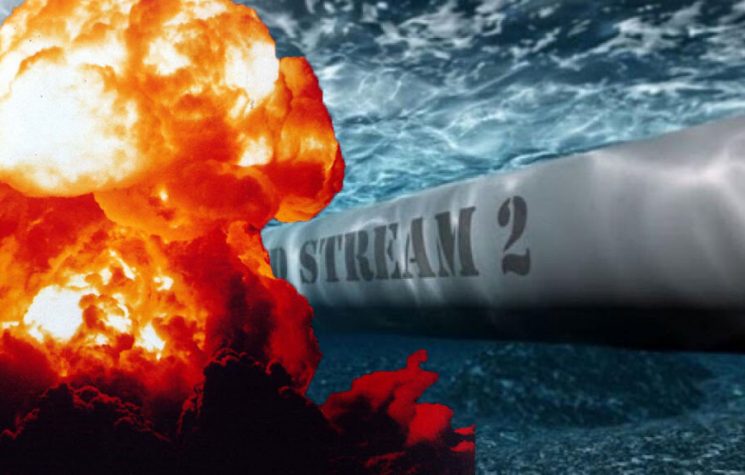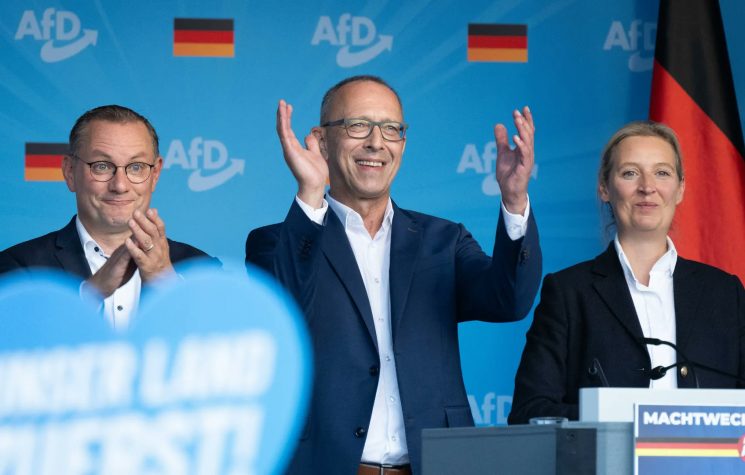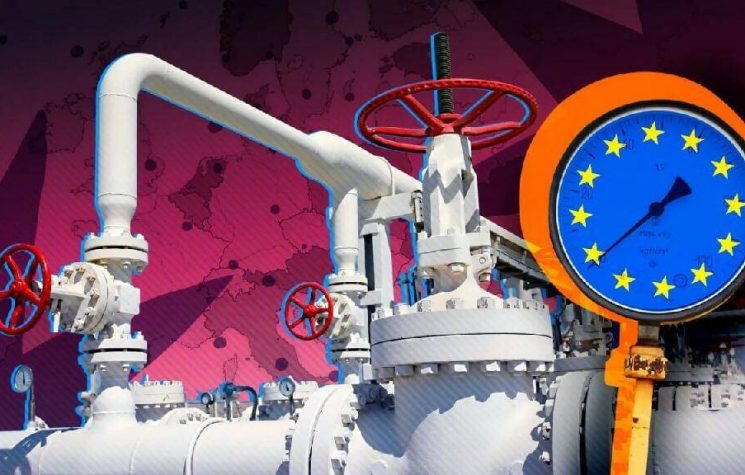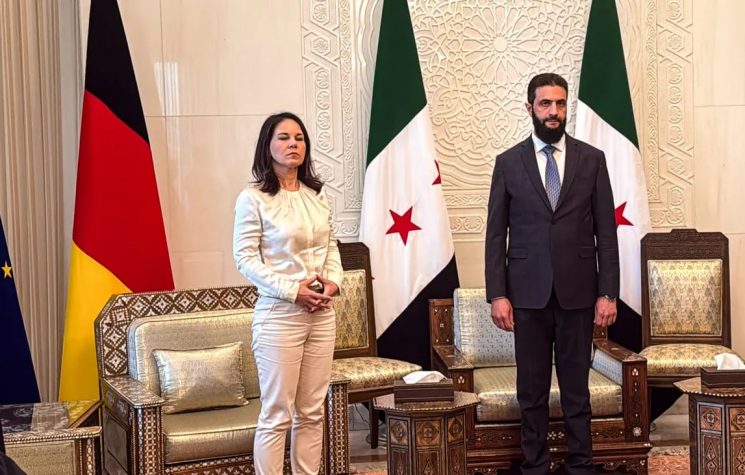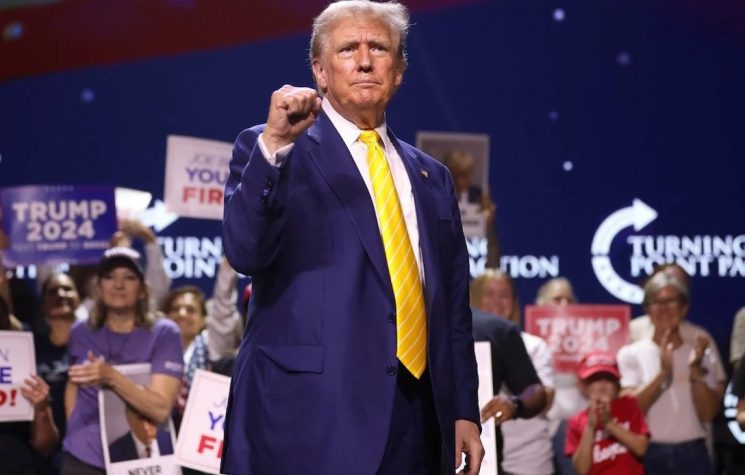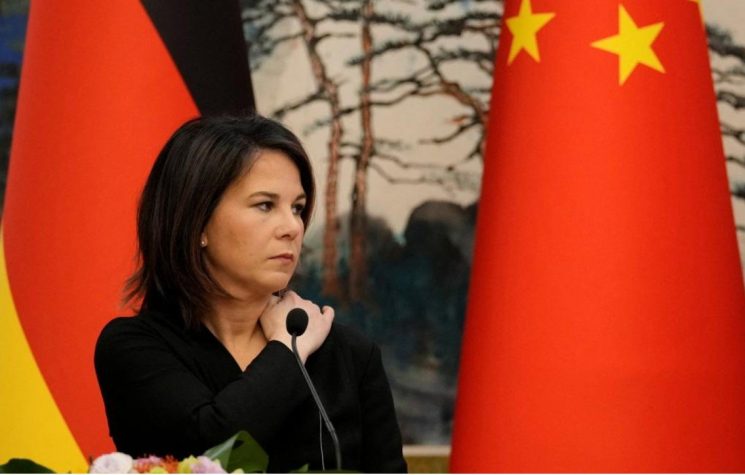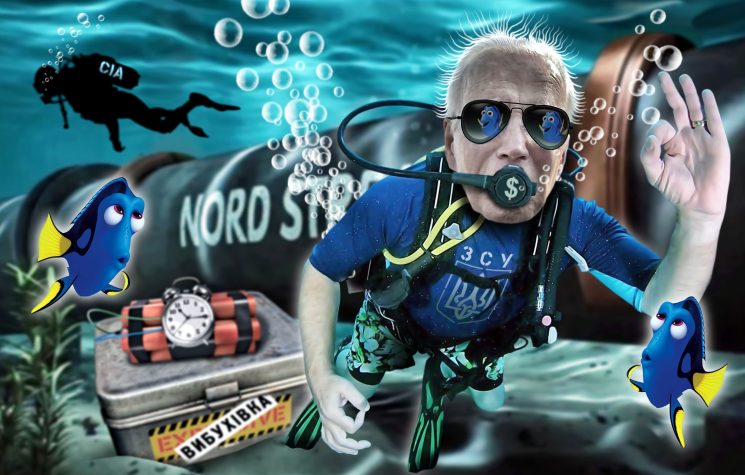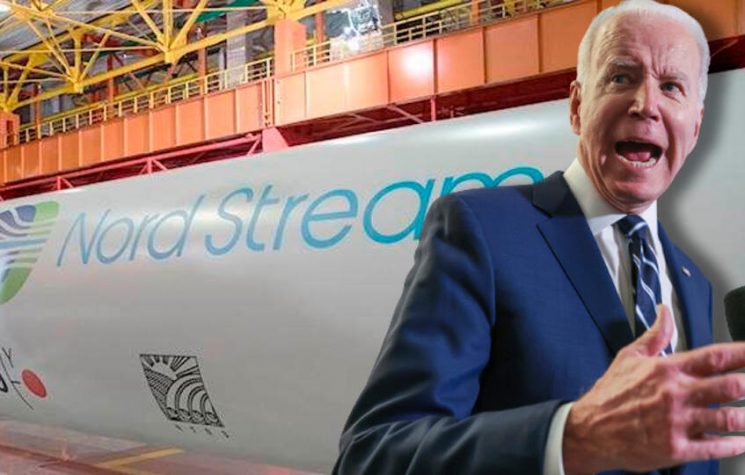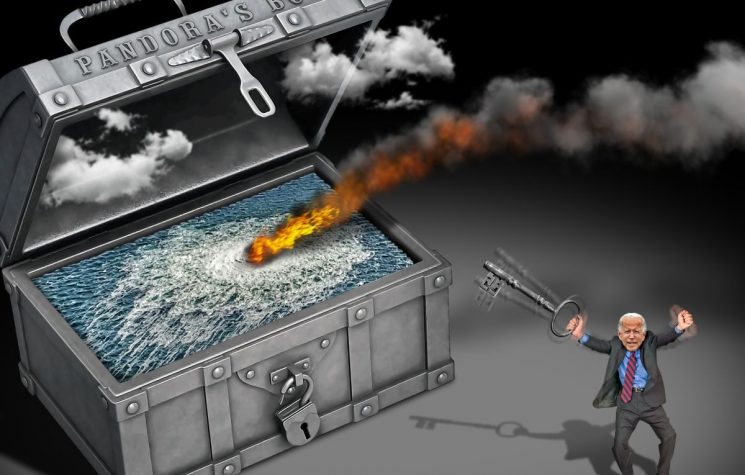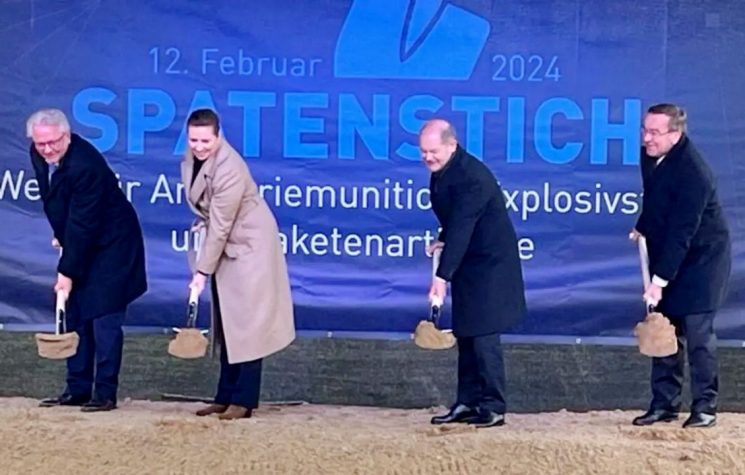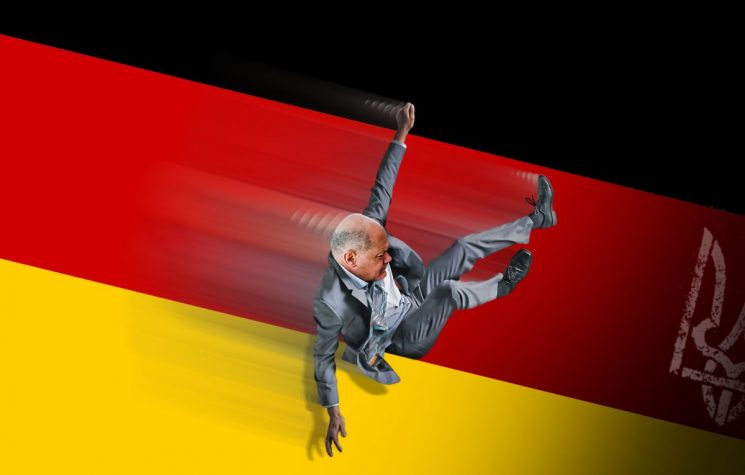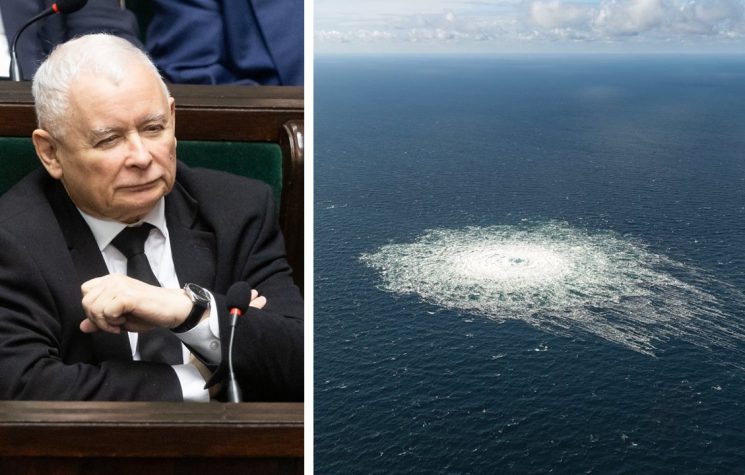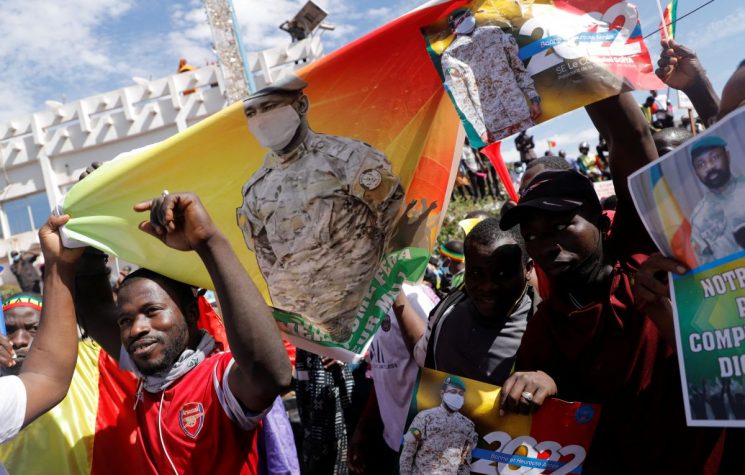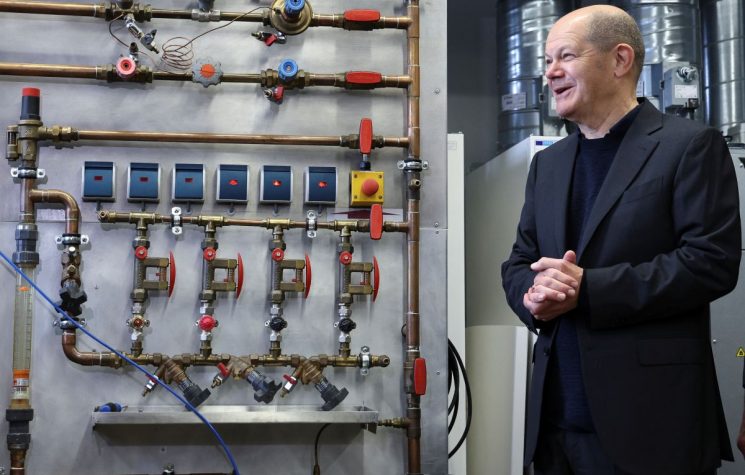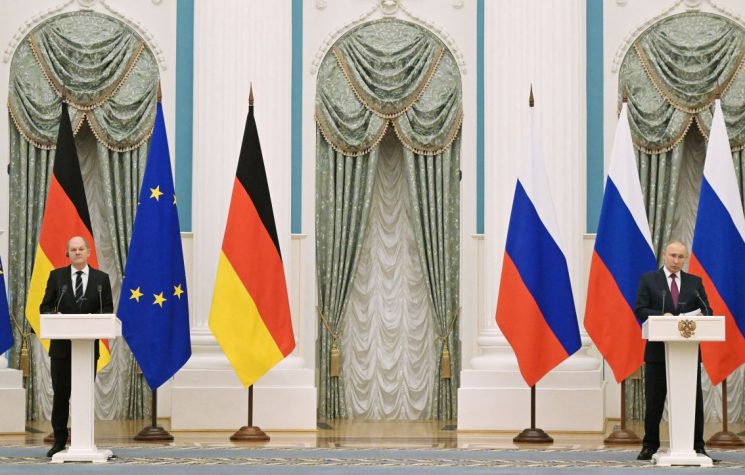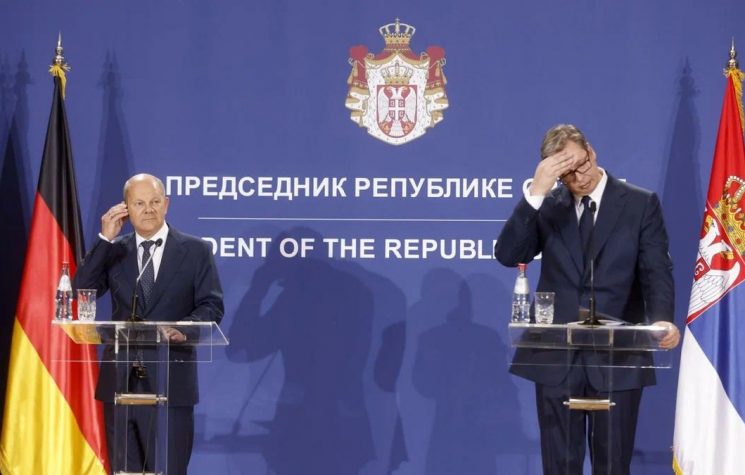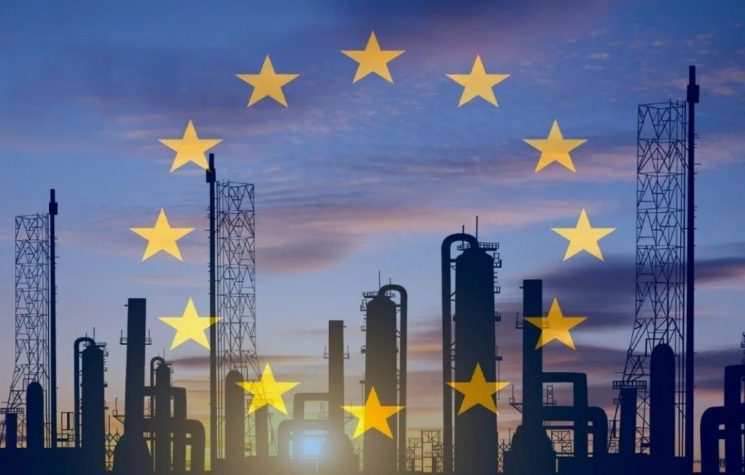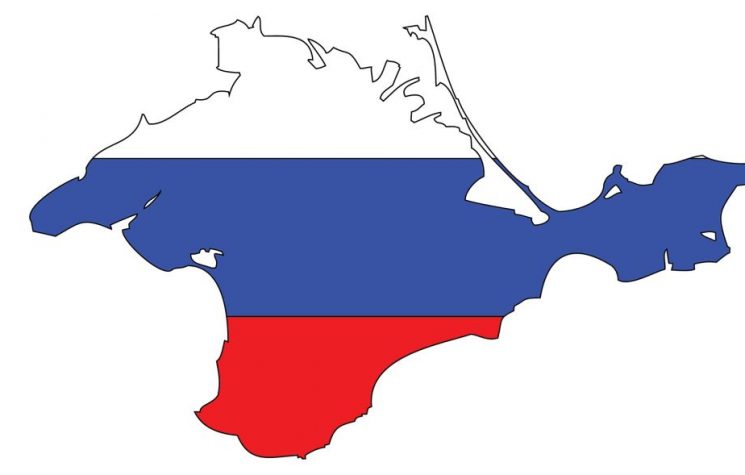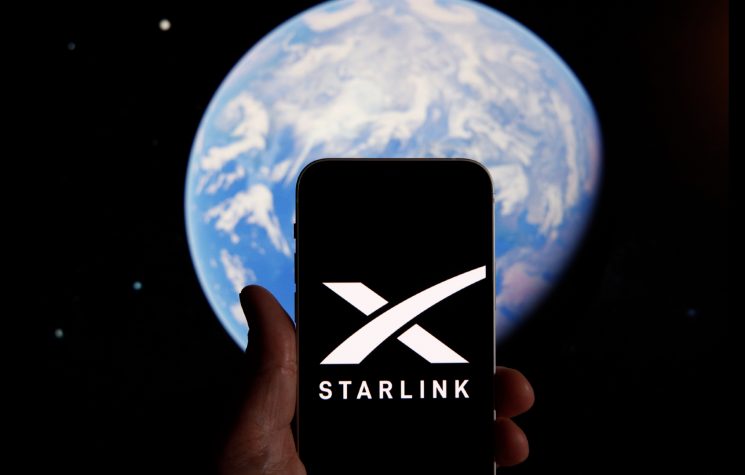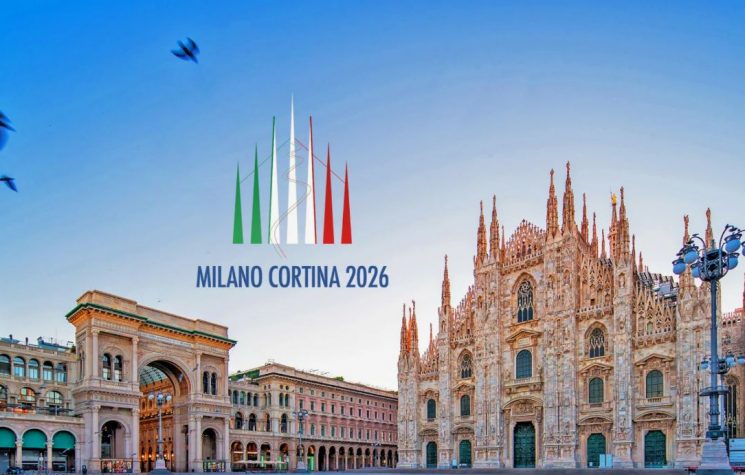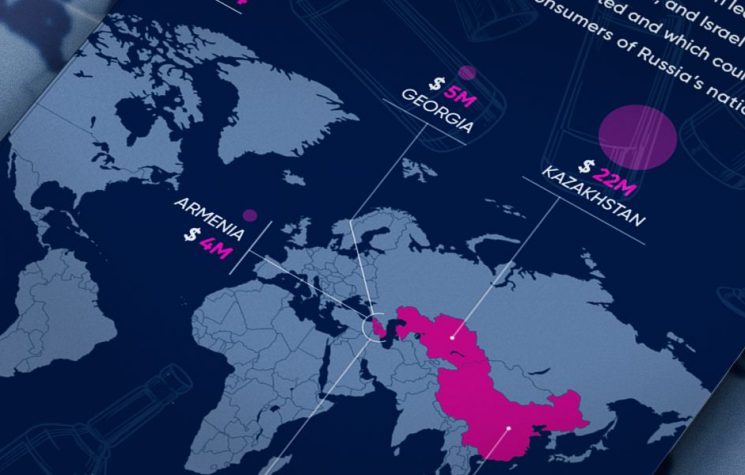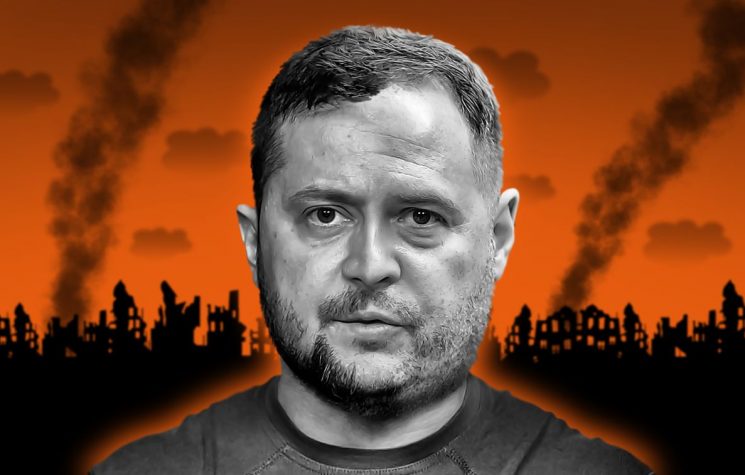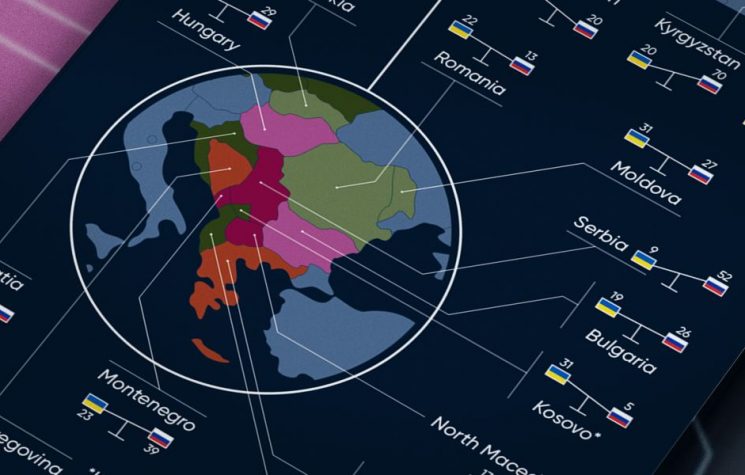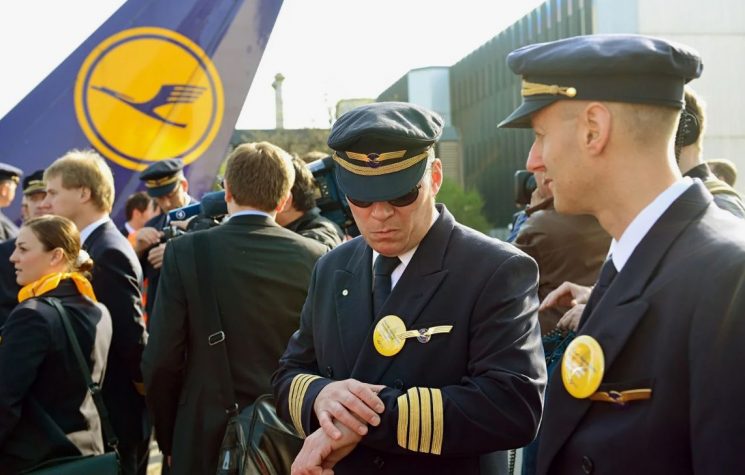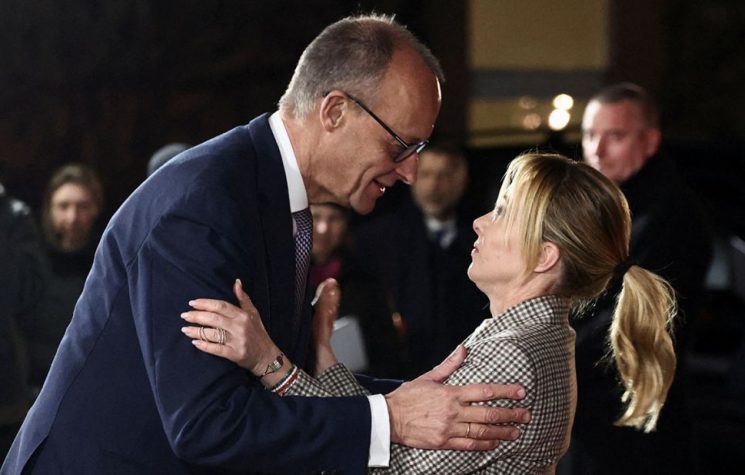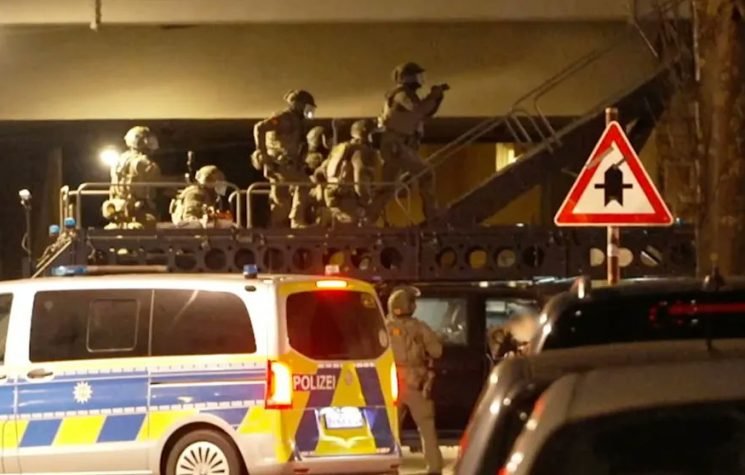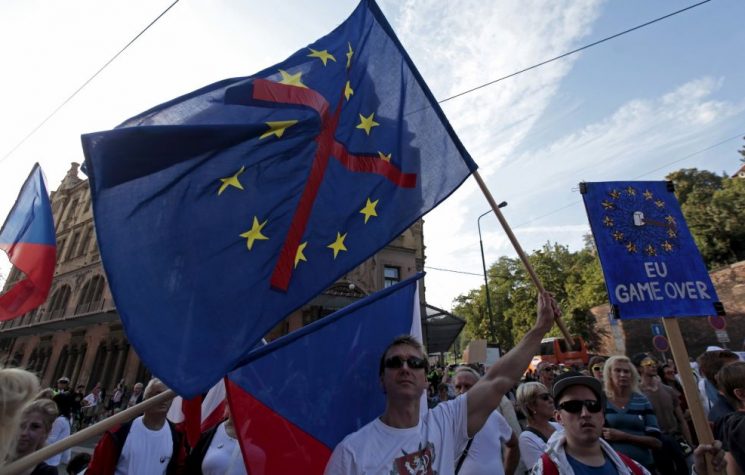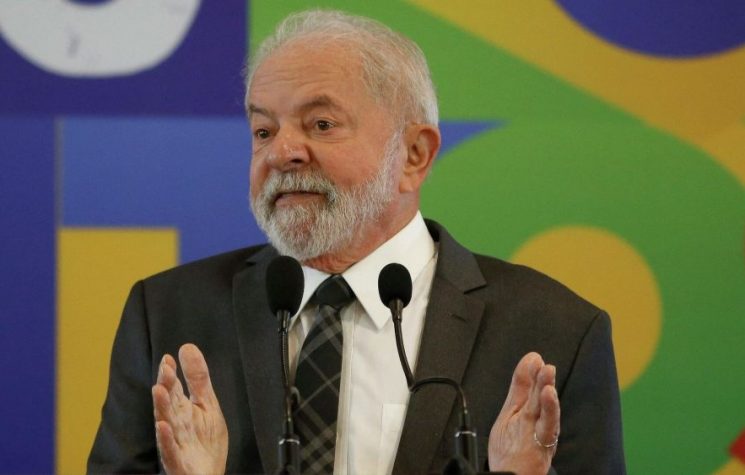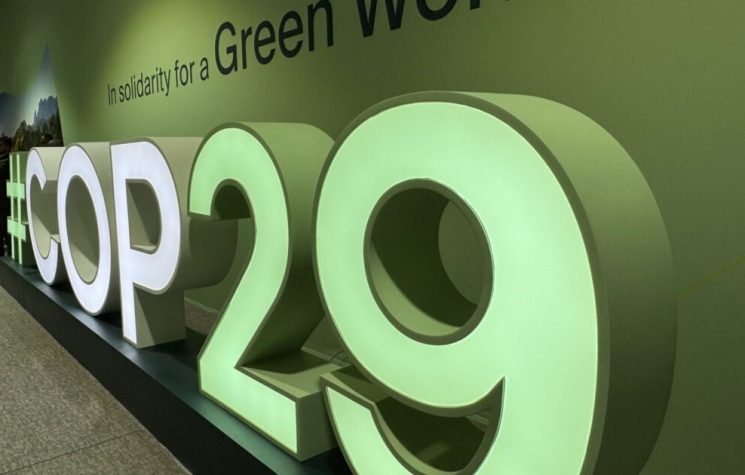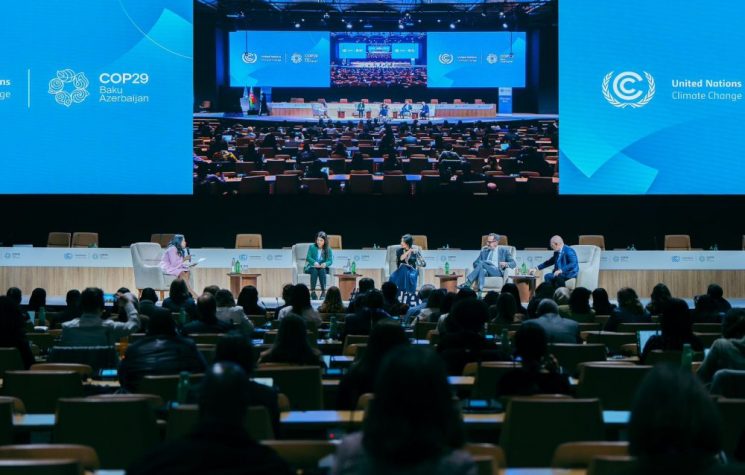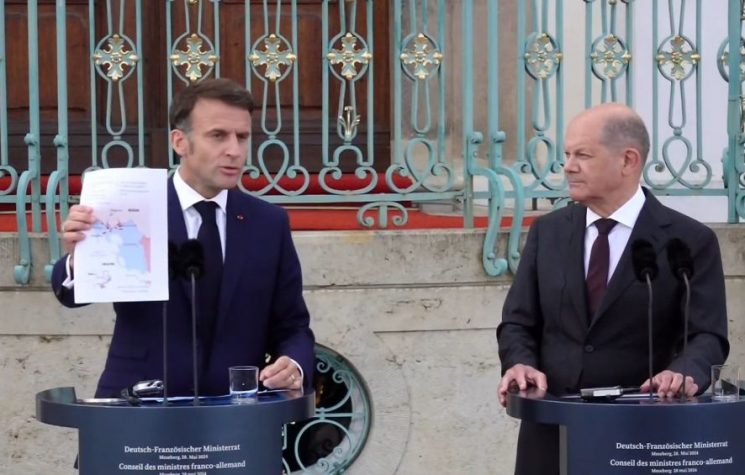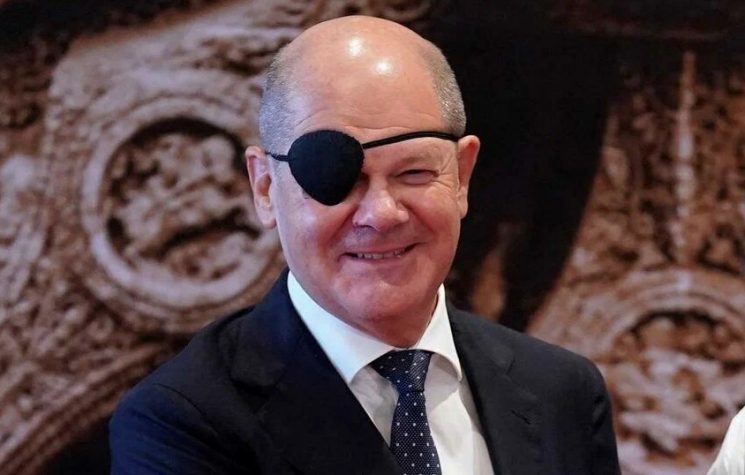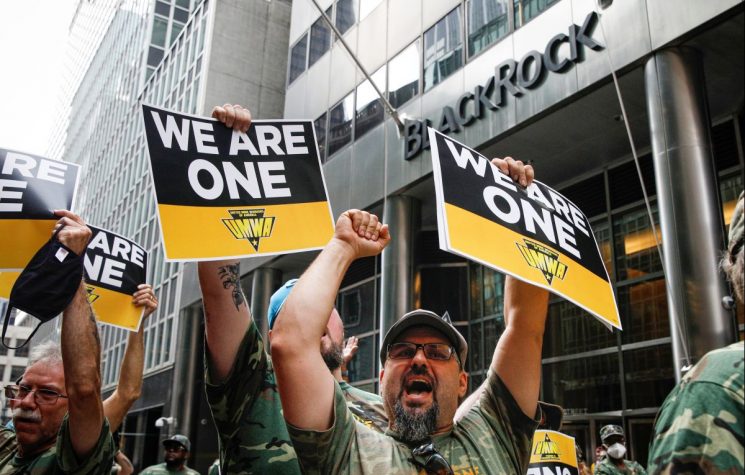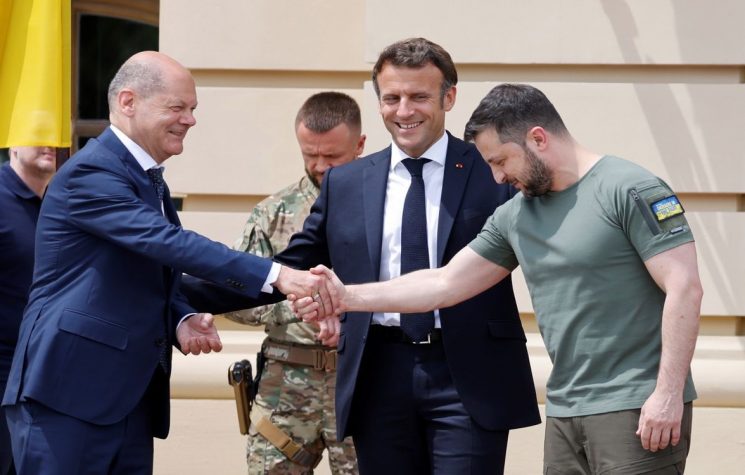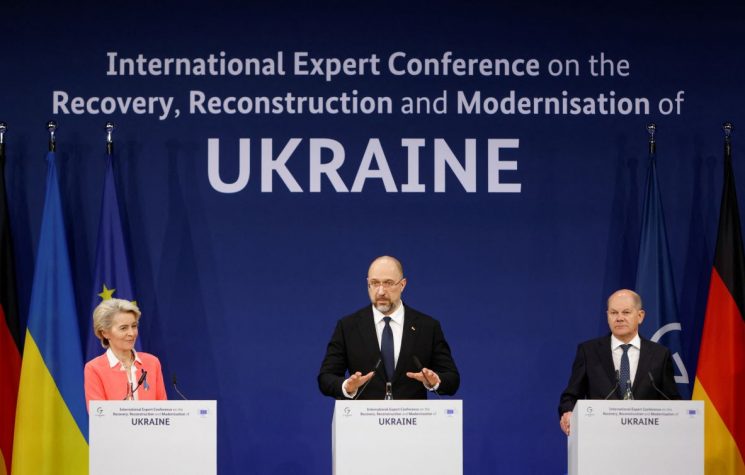If there is a new traffic light in Berlin it’s showing no stops for further U.S. and NATO aggression in Europe.
The new German coalition government headed up by Chancellor Olaf Scholz is only one week in power but already the signals are pointing to Berlin being more amenable to U.S.-led NATO hostility towards Russia.
The “traffic light” coalition (based on party colours) comprises the Social Democrat Party led by Scholz in partnership with the Greens and pro-business Free Democrats. Scholz gave an inaugural address to the Bundestag this week as the new chancellor having replaced Angela Merkel of the Christian Democrats after her 16 years in power.
Following Merkel’s reign, which was hallmarked by stability and her dominant personal style, all eyes will be on the new government in Berlin and its impact on transatlantic relations. Scholz, who is relatively unknown, and his administration could hardly be met with a more challenging time given the heightened tensions between, on the one hand, the U.S.-led NATO military alliance and the European Union, and on the other, Russia.
Berlin’s new foreign minister Annalena Baerbock (who takes over from Heiko Maas) brings to her post a more vociferous, critical position towards Russia. Baerbock, a leading Green lawmaker, announced this week that the Nord Stream 2 gas pipeline between Russia and Germany is being put on hold due to alleged Russian aggression towards Ukraine. The pipeline was already being held up since completion in September by an industrial certification process. But now Baerbock has introduced a geopolitical factor to cancel the project. Before her ministerial post, she was known as a trenchant critic of Nord Stream 2, opposing it because she provocatively claimed, it allowed Russia to “blackmail Europe”, and also apparently on environmental grounds. Ironically, the alternative to Russian gas supply would be the import of American shale gas which is more expensive and dirty owing to its environmentally destructive extraction method. In her latest Nord Stream 2 pronouncement, the German foreign minister is sounding remarkably like U.S. Secretary of State Antony Blinken in linking the project’s future to tensions over Ukraine and putative Russian invasion plans.
Baerbock has also been a long-standing advocate of expanding NATO eastwards and of closer transatlantic ties with the United States.
This eastward expansion of the military alliance is exactly what has caused apprehension in Moscow which views the bloc as threatening Russia’s national security from the potential for advanced positioning of nuclear missiles on Russian borders. Russia’s President Vladimir Putin has urged U.S. President Joe Biden as well as British and French counterparts to implement legal guarantees to safeguard Russia’s security. Those guarantees would include a prohibition on NATO’s further eastward expansion to include membership access for former Soviet republics Ukraine and Georgia.
With Baerbock as Germany’s top diplomat, it is likely that Russia’s concerns will be given short shrift. As the strongest political force in the European Union, a more hardline German policy will ramify across the entire EU and reinforce the position of Russophobic members like Poland and the Baltic states.
As for the new chancellor, 63-year-old Scholz was formerly the finance minister in Merkel’s last coalition government. That administration was robustly supportive of the Nord Stream 2 partnership with Russia. Under Merkel, Berlin rebuffed Washington’s objections to the pipeline saying that it was a sovereign matter for Germany. Scholz himself had in the past spoken out against American meddling over Germany’s energy policy. The Biden administration appeared to respect Berlin’s independence on the issue by dropping threats of sanctions against participating companies. That background might suggest that the chancellor’s office would hold Baerbock’s foreign ministry in check.
However, the recent escalation of tensions over Ukraine fuelled by Washington’s claims that Russia is planning to invade the country has hardened Germany’s stance towards Moscow, in particular on the issue of expanding economic sanctions as “severe consequences” for alleged Russian aggression. Moscow has repeatedly dismissed the U.S. claims of invasion plans, but disconcertingly Germany and the rest of the EU have gone along with Washington’s narrative, accepting dubious American “intel” as if good coin, reminiscent of the WMD propaganda leading up the war on Iraq. That paradigm shift suggests a premeditated, orchestrated objective for the U.S. The Europeans have been suitably suckered into the ploy. And, at last, the Nord Stream 2 project is within target of Washington’s policy torpedoes.
In his address to the Bundestag this week, Scholz called for “constructive dialogue” with Russia to “stop the spiral of escalation”. He also called for “mutual understanding”. That may sound like an enlightened policy of diplomatic engagement. But then, disappointingly, Scholz vowed that Germany would “speak with one voice with our European partners and transatlantic allies”. That means Berlin is henceforth deferring to the position of Washington and Kiev in terms of determining response to the accepted narrative of “Russian aggression”.
Whatever the shortcomings of Merkel – she was no radical critic of Washington – but she at least was capable at times of exerting a modicum of independence. Her unwavering support for Nord Stream 2, for example, despite American pressure. Also more recently, it has emerged that Merkel reportedly blocked supplies of NATO weapons to Ukraine much to the annoyance of the Kiev regime.
Olaf Scholz does not come across, at least so far, as a strong leader. His mealy-mouthed talk about “sharing one voice” with the U.S. and “partners” like Ukraine, as well as his ready acceptance of spurious allegations about Russian aggression, indicate that the new Berlin government will be a pliable tool for Washington’s policy of hostility towards Russia.
Historically, it is ominous that the first German overseas military action since 1945 occurred in 1999 under an SPD-Green coalition. That was when Germany joined in the NATO bombing of Serbia. These parties are coalition partners again at another crucial time for Europe.
If there is a new traffic light in Berlin it’s showing no stops for further U.S. and NATO aggression in Europe.











